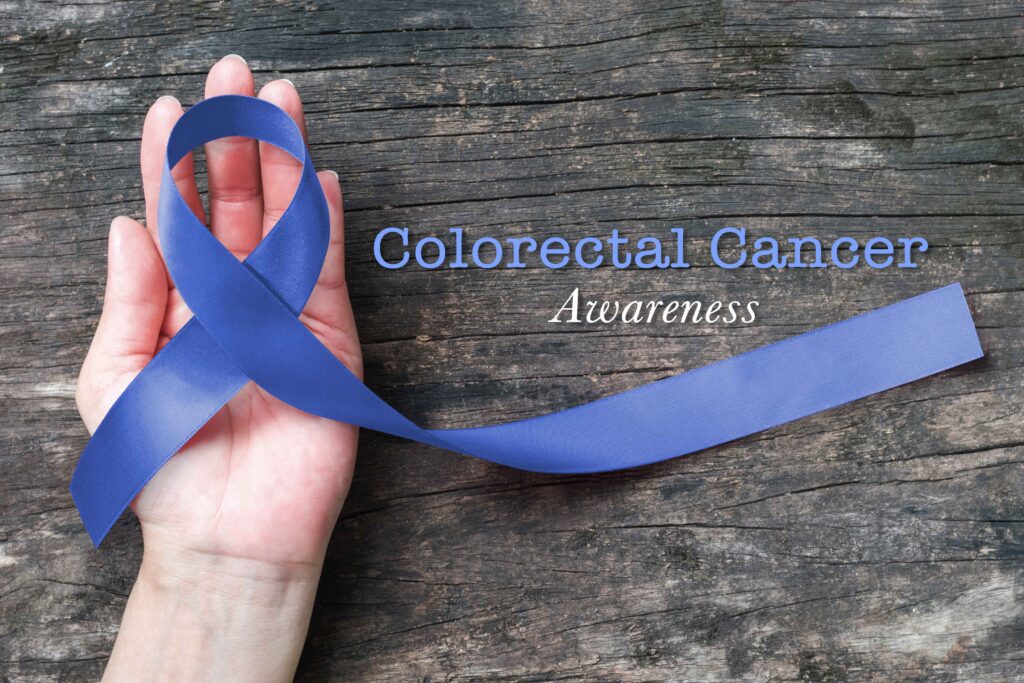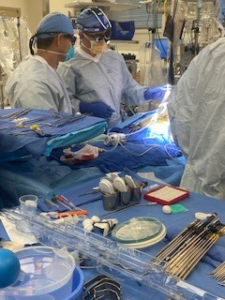
Manju B. Jayanna, M.D. Joined Our Cardiology Team
We are excited to welcome Manju B. Jayanna, M.D. to our Cardiology team located at 825 Old Lancaster Road, Suite 400, in Bryn Mawr. Dr. Jayanna

March is Colon Cancer Awareness Month, and it’s the perfect time to highlight the importance of screening for this deadly disease. Colorectal cancer – cancer of the colon or rectum – is the third most common type of cancer in both men and women, and it’s estimated that over 100,000 new cases will be diagnosed in the United States this year alone. The good news is that colorectal cancer is preventable in many cases, and regular screenings can help detect it early and even prevent it from developing in the first place.
The screening process for colorectal cancer involves either stool-based testing or colonoscopy. Colonoscopy is a procedure that uses a thin, flexible tube with a camera on the end to examine the inside of the colon. During the procedure, your doctor can detect polyps (small growths on the colon wall) and remove them before they become cancerous. This means that colorectal cancer can often be caught in its earliest stages, when it’s highly treatable and has a much higher survival rate or prevented altogether. Stool-based testing are at home tests. There are different types of stool-based testing, that you do on an annual or every three-year basis depending on the test. Stool-based testing looks for microscopic levels of blood in your stool, that can be present in patients with advanced/large polyps. Other stool tests rely on the detection of blood or the presence of abnormal DNA shed by large colon polyps or colorectal cancer. If you opt for stool-based testing and have a positive result, you will need a colonoscopy to investigate the cause of the abnormal test.
Despite the benefits of screening, many people are still reluctant to undergo testing. Some may be afraid of the discomfort or embarrassment, while others may simply be unaware of the importance of early screening and detection. Remember that we are here to help and colorectal cancer is a serious disease that can have devastating consequences if left untreated. By undergoing regular screenings, you can take control of your health and significantly reduce your risk of developing colorectal cancer.
Aside from screening, its important to be aware of the signs and symptoms of colorectal cancer. These can happen at any point, including at earlier ages than screening (younger than 45) or in patients even if you have been getting screened regularly. Findings that should prompt you to talk to your doctor about getting a colonoscopy include blood in the stool, unexplained abdominal pain or weight loss, or a significant change in the appearance of your stool. Be vigilant and speak to your doctor if you experience any of these symptoms.
If you’re over the age of 45, or if you have a family history of colorectal cancer, it’s especially important to talk to your doctor about scheduling a screening test. Don’t wait until you experience symptoms or until it’s too late to take action. By being proactive about your health, you can help ensure a long and healthy life free from colorectal cancer.

We are excited to welcome Manju B. Jayanna, M.D. to our Cardiology team located at 825 Old Lancaster Road, Suite 400, in Bryn Mawr. Dr. Jayanna

BMMSA’s Dr. Sheetal Chandhok, Main Line Health’s Dr. Basel Ramlawi and the cardiac team at Bryn Mawr Hospital, part of Lankenau Heart Institute, recently performed
Let’s get started! Answer a few basic questions to see if Jumpstart© with OPTIFAST® Program is right for you.